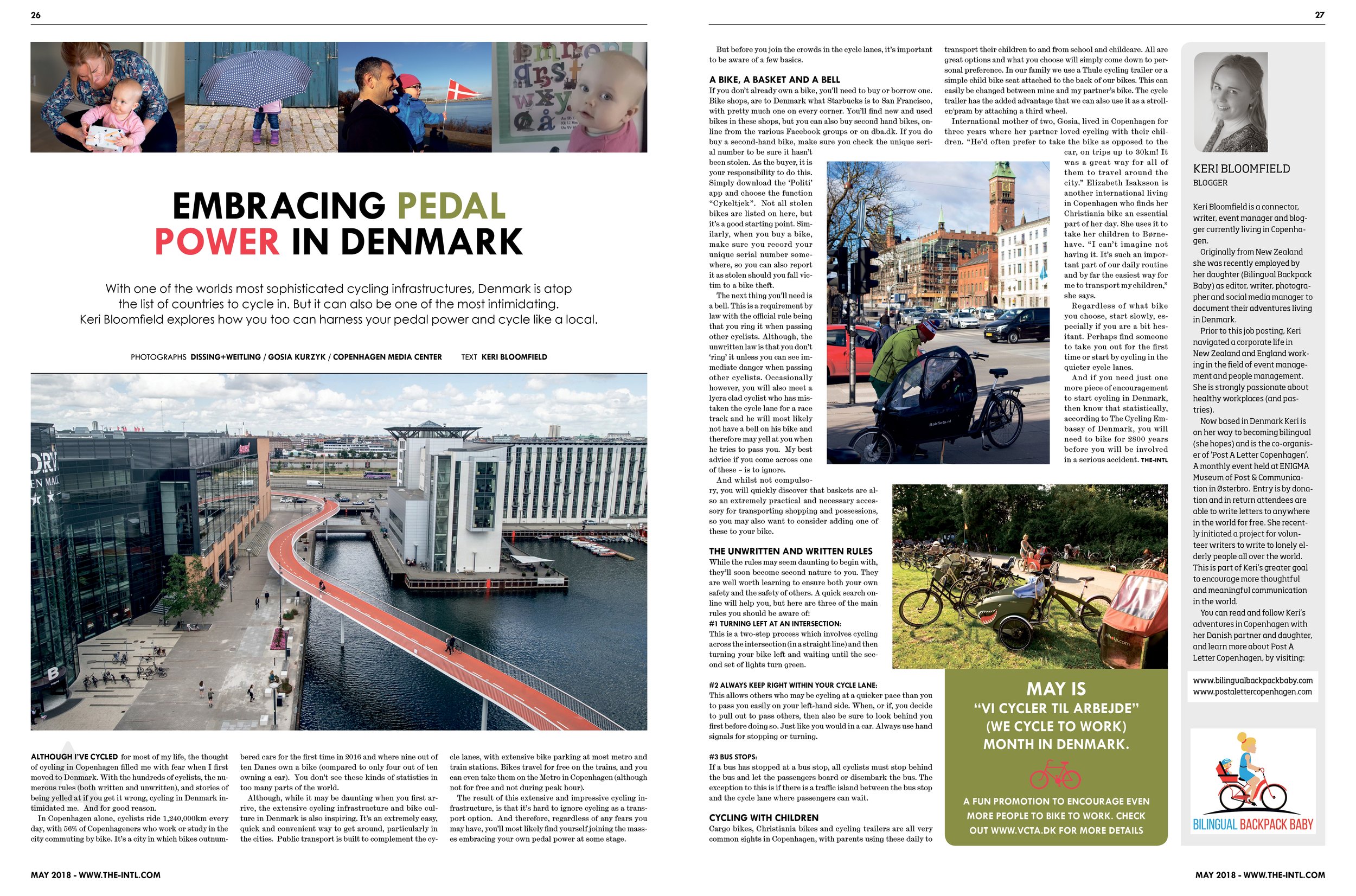A few months ago we wrote an article for 'The International' about cycling in Denmark.
Since writing the article, I've talked with several new (& not so new) arrivals and been reminded just how foreign and challenging cycling can be for some.
Danes are seemingly born on bikes. It's second nature for most.
But for many new arrivals, who may have never learnt how to cycle, or only ever spent minimal time on a bike, it can be a daunting prospect to begin cycling in Denmark (as if the learning the language wasn't a big enough challenge).
Even for myself, a former 'athlete' of sorts (where athlete refers to my numerous entries in cycling events of 100km+ as a B..O.F (*) specialist). I was very nervous about my first debut on the Copenhagen cycle lanes
The cycle lanes in Copenhagen are full with quite literally thousands of cyclists every day. Moving at a pace that can be unnerving and operate on a mix of both official rules and unofficial rules. Additionally, the mix of abilities within the lanes can often be one of the biggest risks to navigate. From the very experienced to the newly arrived, to the over-ambitious and the oblivious.
You can, of course, survive in Denmark if you don't cycle. In particular, Copenhagen has a very good public transport system (albeit a Metro without air conditioning) and is also a very walkable city. So cycling isn't a compulsory activity. But. When you master it, you'll truly appreciate the freedom and quickly realise for cities like Copenhagen, it can really be the fastest way around town.
But you need to do your homework first.
So if you're new to Denmark and a little unsure about cycling then take a read of the article we wrote for The International - 'Embracing Pedal Power in Denmark'.
And if you can't spare that time, then I hope at least these 3 points will be helpful to you:
1. Where to buy a 2nd hand bike
There are many Facebook groups set up for this purpose. These are 2 of the bigger ones in Copenhagen Buy A Bike Copenhagen and Buy / Sell Used Bike Copenhagen
You can also check out www.dba.dk (Denmark's equivalent to E-bay, except more 2nd hand goods).
2. How to check if your bike is stolen
If you're buying a second-hand bike, make sure you do your homework first and see if it has been registered as stolen. Just download the ‘Politi’ app and choose the function “Cykeltjek”. Not all stolen bikes are listed on here, but it’s a good starting point.
3. Bike riding lessons
If you have never cycled before then don't rush into this. It's not always a case of 'duck to water'. So if you're not confident or not really sure what you're doing then take the time to do some research and if need be, take some lessons. The Red Cross offers free lessons in Copenhagen and they provide everything (bikes, helmets, voluntary trainers). The classes are for everyone who needs to learn how to ride a bike – although their primary participants are female refugees or immigrants. Full details about Red Cross cycling lessons here.
If your ability is a bit higher, then maybe lessons with a friend on some quiet streets will do the trick instead.
And if you're curious about what fines apply for breaking the laws while on a bike (including 1000kr fines for talking on your phone while cycling), then I found this handy little list.
But whatever you do, cycle safely. If you do this, you keep not only yourself safe, but everyone else who is the sharing the cycle lanes with you, safe also.
*B.O.F = Back of Field Specialist


